The best thing about lockdown is the extra reading time.
My reading has always been ambitious, but when there’s literally nothing else to do my reading skyrockets.
So here’s what I’m loving and looking forward to reading in May 2020.
Anna Karenina – Leo Tolstoy
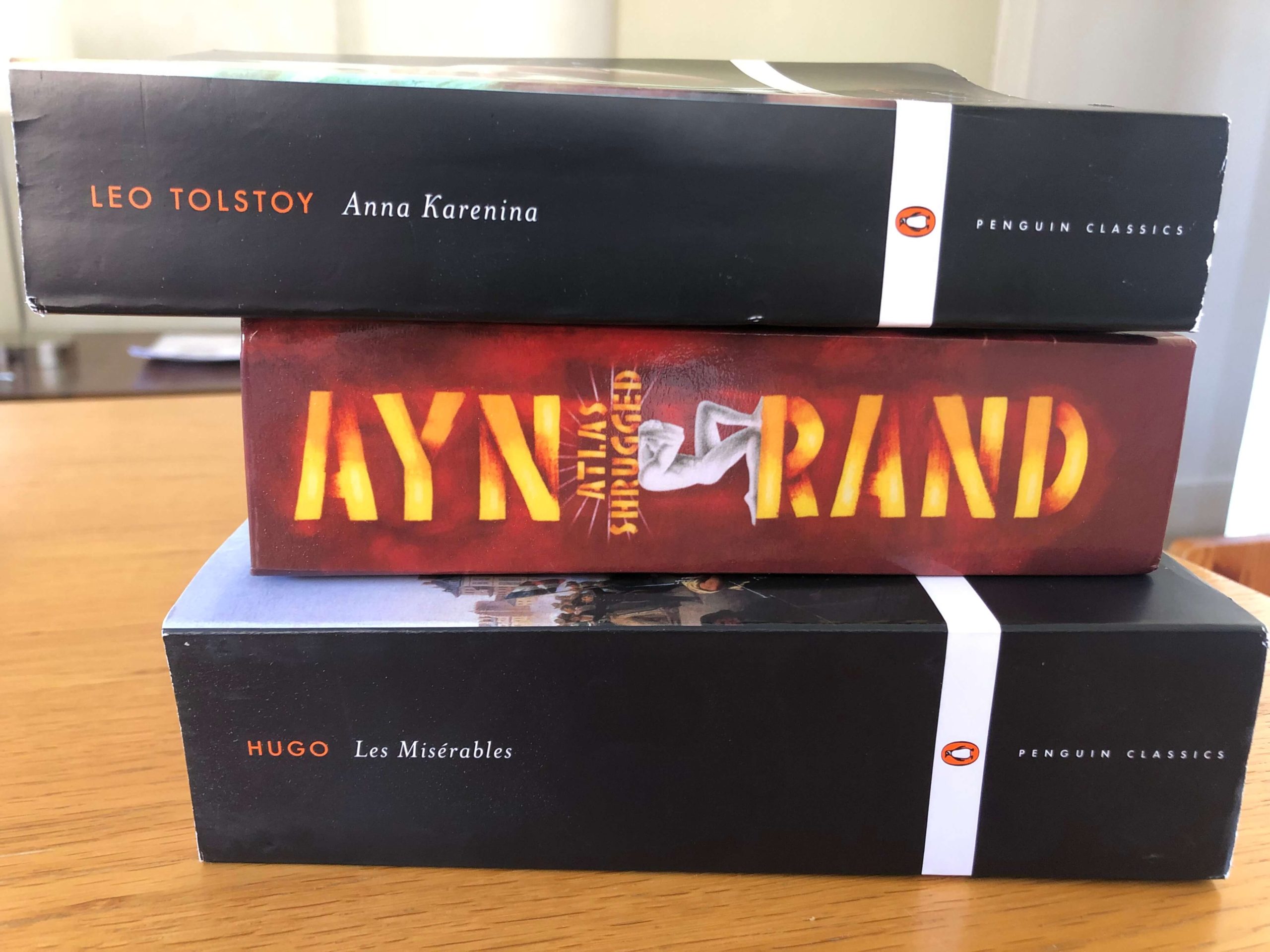
My good friend Misha implored me to commit to these great works one at a time. So that’s what I’m doing. I’m living in and with each of these one-by-one.
The biggie! I wanted to order a copy for my girlfriend so she wouldn’t have to keep stealing mine, but it was sold out on Amazon. War and Peace was sold out too. I thought this was a bit strange, but opted for a lovingly dog-eared secondhand version. Now we’re both immersed in the same world, both able to pass comment upon the behaviour of Vronsky, Kitty, Levin, et al. Then I read in the latest issue of The Economist, in an article entitled ‘The solace of Tolstoy’ that the world is collectively reading Tolstoy right now.
Thousands of people across six continents are united together in the reading of War and Peace. I understand why Camus’ The Plague is sold out. I understand why Stephen King’s The Stand is sold out. But why have we all collectively agreed that the best medicine for quarantine times is Tolstoy?
George Saunders, author of one of my top ten favourite books of all time Lincoln in the Bardo, says that Tolstoy observes humankind the way God sees us, with empathy, forgiveness, encouragement, and generosity. I’m two hundred pages into the Pevear and Volokhonsky translation, alternating with Maggie Gyllenhaal’s epic audiobook version, and, so far, I would agree with that sentiment. It’s fast becoming the most powerful works of literature I’ve ever encountered.
Check out Anna Karenina here.
The Silence of the Lambs – Thomas Harris
The book and the film are both perfect expressions of their artistic medium. The film’s a perfect film and the book’s a perfect book. The reason I picked this one up is because I was perusing the college syllabuses of David Foster Wallace (as you do). That’s right. The guy who wrote Infinite Jest led classes on reading and analysing popular fiction. He listed books like Stephen King’s Carrie and Mary Higgins Clark’s Where Are The Children?
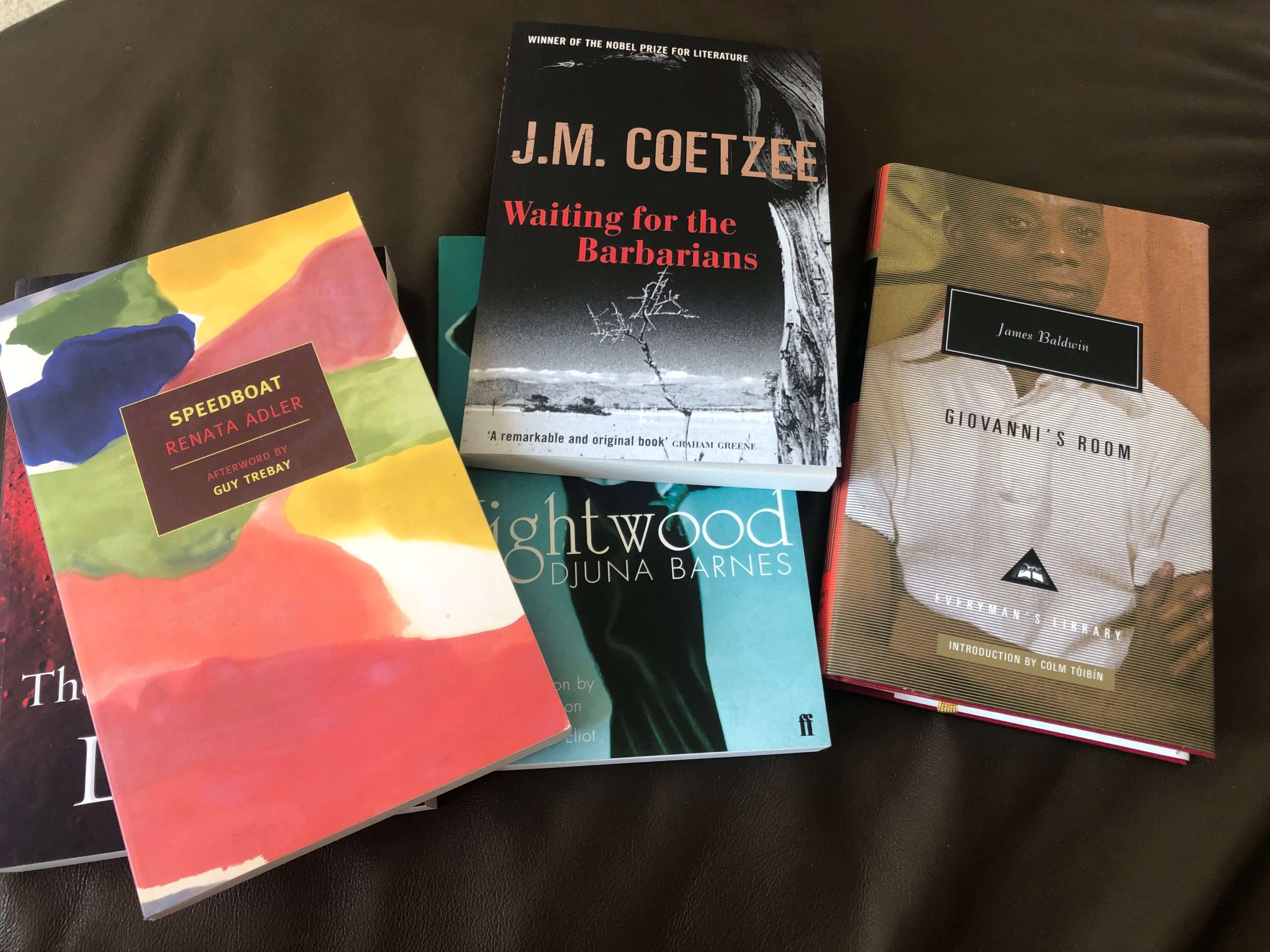
The Silence of the Lambs is hiding, like Dr. Lecter behind his mask, beneath Renata Adler’s Speedboat.
I decided to pick this one up and analyse it, treating it like a great work rather than a pulp thriller. I also picked up a few other books that made it onto the late great DFW’s syllabuses: Waiting for the Barbarians by J.M. Coetzee, Giovanni’s Room by James Baldwin, Nightwood by Djuna Barnes, and Speedboat by Renata Adler. I’ll let you in on a little secret: I love David Foster Wallace’s syllabus so much that I’m going to teach it myself. Look forward to that series of lectures in the near future!
Check out The Silence of the Lambs here.
Meeting The Shadow – Connie Zweig and Jeremiah Abrams (eds)
I’ve been obsessed with the Jungian idea of the shadow for years. Obsessed with the idea that the more you’re able to see your shadow, the more you’re able to reign it in and use it to your benefit.
The most terrifying thing to me is the prospect of not being able to see one’s shadow. Some people refuse to believe they even have a shadow at all! These are the most dangerous kinds of people. It’s people like these who were responsible for Nazi Germany. This book is a fascinating collection of essays on the shadow that will change the way you see human nature forever.
Check out Meeting The Shadow here.
The Taschen Art Books
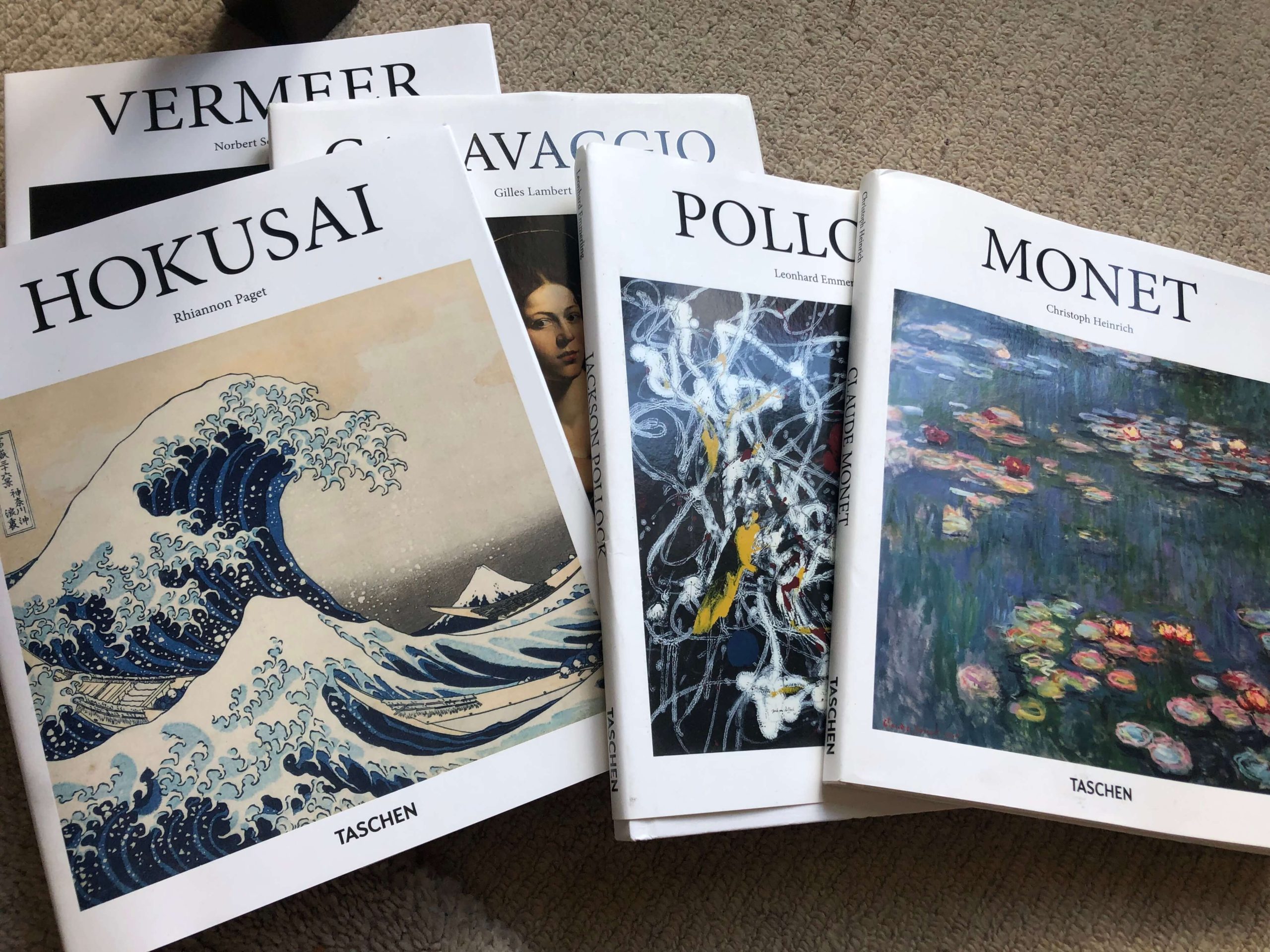
One of my book goals is to have a library with every copy of the Taschen series.
These are hands down the best art books in existence. Inexpensive, beautifully constructed, lovingly written commentaries.
You pick one up just to pore over the pictures for a few minutes and before you know it a few hours have elapsed and you know everything there is to know about Jackson Pollock or Sandro Botticelli. In addition to the Taschen books on those two greats, I’ve also been enjoying the books on Hokusai, Caravaggio, Hopper, Renaissance Art, Lichtenstein, Vermeer, Monet, and Klimt.
Check out the one on Hokusai here.
How Musicals Work by Julian Woolford
Part of being a writer is reading books on craft. I always have a few in circulation along with reading wide in and out of my chosen genres. Writing a musical is my long-term passion project. Looking at this weeks issue of The Stage, it seems this will have to be a very long-term project seeing as theatres predict being closed until at least 2021.
It’s going to be a whole new world for the theatre and performing arts industry. In the meantime, however, we can work with what we can control: learning and refining the nuts and bolts of craft. And I’ve been doing that with this fine book along with The Art of Dramatic Writing by Lajos Egri.
Check out How Musicals Work here.
Les Miserablés by Victor Hugo
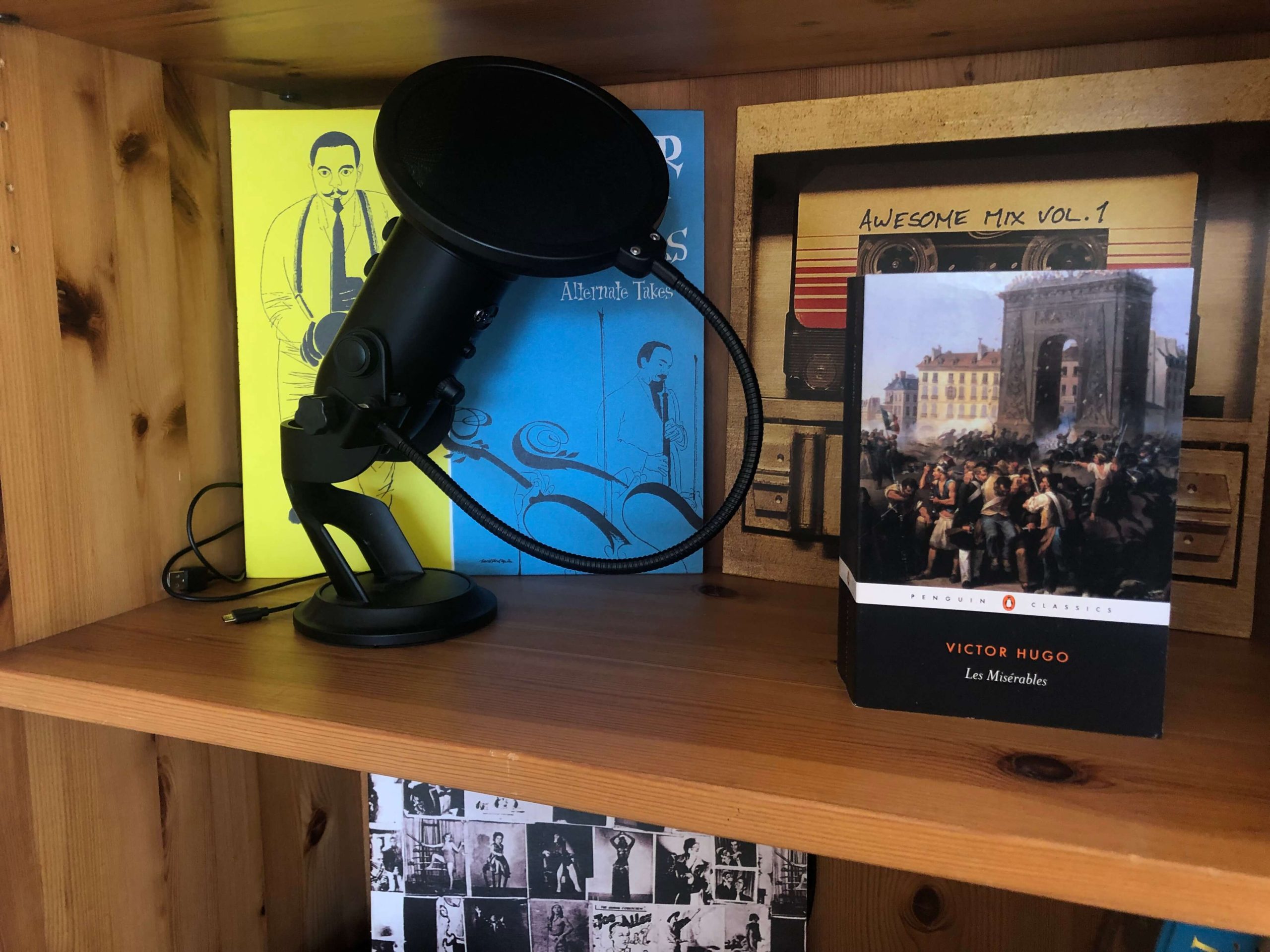
The Hardcore Literature episode on Les Misérables is slated for late June.
I’ve got this one slated for my big read once I’ve finished Anna Karenina. I’m enjoying Anna so much, and so furiously looking forward to Hugo’s great work, that I decided this is going to be the year of big reads for me.
I’ll get to the end of this year and be able to say, ‘Oh, War and Peace? Read that. Les Mis? Read it. Atlas Shrugged? Read it.’ I’m going to be so annoying. Join me?
Check out Les Misérables here.
The Bradbury Trio
In addition to all of this, I’ve returned to my favourite reading program of all time: the Bradbury Trio, so named because Ray Bradbury assigned it to would-be writers.
The program has you reading one short story, one essay, and one poem a night for the next 1,000 nights. The short stories I enjoyed this week include Denis Johnson’s ‘Emergency’, D.H. Lawrence’s ‘The Rocking-Horse Winner’, and Jamaica Kincaid’s ‘Girl’.
The Patience Stone by Atiq Rahimi
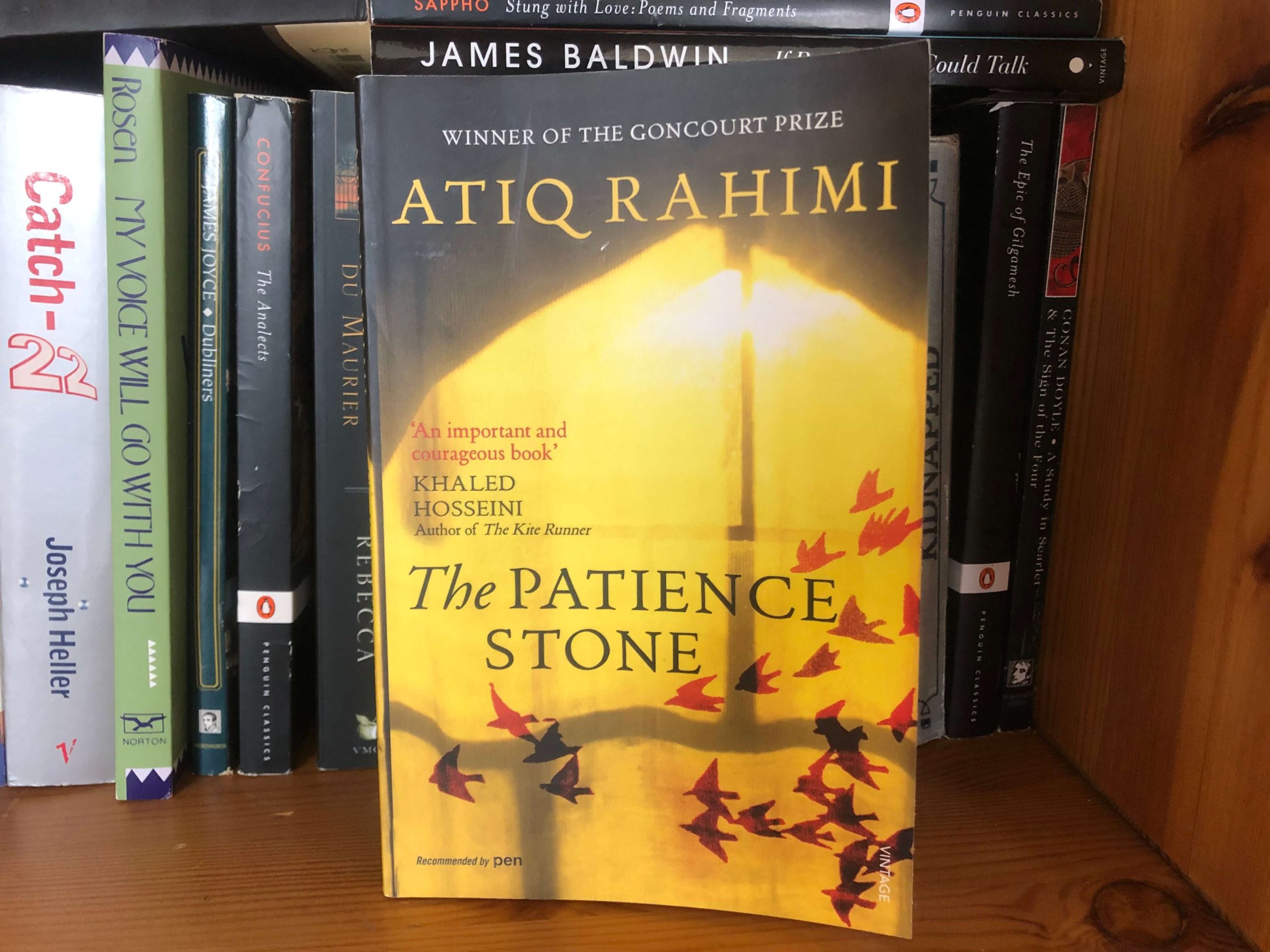
Part of my diverse reading program, much as I loathe the word diverse and what it has become in the mouths of people I abhor.
I love reading diversely. And by “reading diversely”, I absolutely do not mean the nonsense about boycotting all straight white male authors. That’s deplorable virtue-signalling racism and sexism parading as morality. When I read diversely, I do not discriminate. I’m simply going down a list of countries, beginning with Afghanistan, then moving on to Albania, Algeria, Andorra, and Angola until I reach the end of the alphabet with countries like Yemen, Zambia, and Zimbabwe.
I’ve written about this reading challenge before and encourage you to check it out because it’s really exciting stuff:
I’m kicking off this reading around the world challenge with a slim book from an Afghanistan writer who is not Khaled Hosseini. I’m a quarter of the way through but will reserve judgement until I’m finished. If I have enough time (which I actually don’t have much of) I may commit to doing a reading around the world roundup and review each book and country as I go along.
Check out The Patience Stone here.